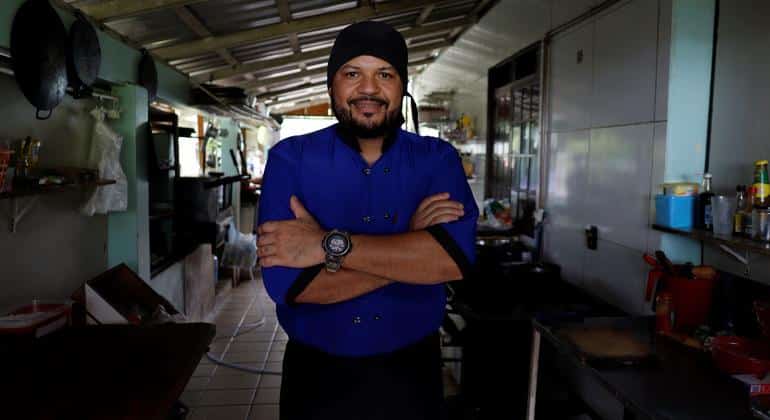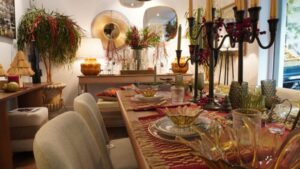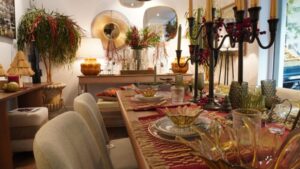Here’s the translation in American English:
—
The International Organization for Migration (IOM) continues its mission to support Venezuelan migrants in the state of Roraima, Brazil. In this context, the municipality of Pacaraima has set up two centers dedicated to facilitating the socioeconomic inclusion of these refugees into the local community.
Since the outbreak of the political and economic crisis in Venezuela, thousands of people have crossed the border in search of a new home. A notable example is Chef Romeu, who decided to start a food business in Pacaraima, motivated by his desire to be closer to his children. He began his venture with a hamburger delivery service, which quickly evolved into a restaurant that has become a gathering place for both migrants and locals.
The welcoming atmosphere of the restaurant has turned it into a point of cohesion, where Brazilians and Venezuelans share not only food but also experiences and traditions. Romeu’s menu is a fusion of flavors that celebrates the rich cultures of both countries, attracting a diverse clientele.
Romeu’s journey is that of an entrepreneur who has reinvented himself. Since his teenage years, he began his career in gastronomy, working as a waiter in his hometown and later gaining experience on Margarita Island. His passion for cooking led him to open his own establishment, where he honed his skills.
Today, his restaurant, called Rustic, is entirely operated by him, who is responsible for everything from cooking to delivering dishes by bicycle. The success of his venture has increased demand, allowing him to hire other local workers.
Recently, Romeu was invited to participate in a Festa Junina, where he served typical dishes from this community celebration. His adaptation has been remarkable, incorporating Brazilian flavors like quentão, canjica, and curau, which are now also appreciated by Venezuelan migrants.
More than just a restaurant, Rustic plays a key role in uniting the community, supporting the local economy and symbolizing the struggle and resilience of those who have started anew in Brazil. “Emigration is never easy,” reflects Romeu. “You leave everything behind and start from scratch, but Brazil welcomed me, and for that, I am truly grateful.”
via: MiMub in Spanish











